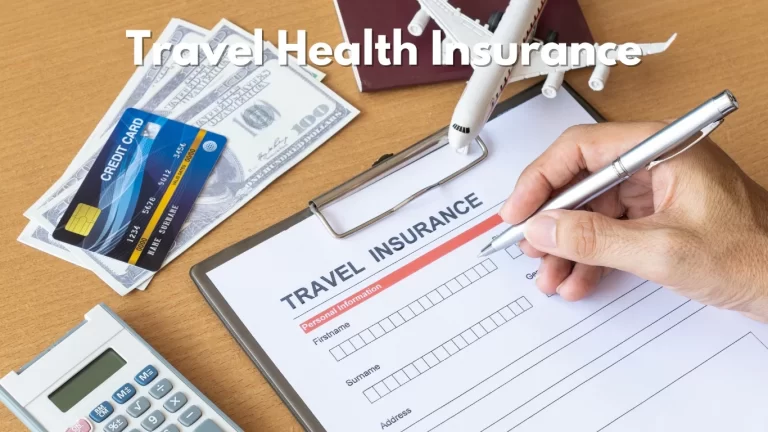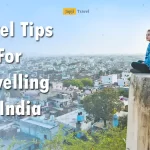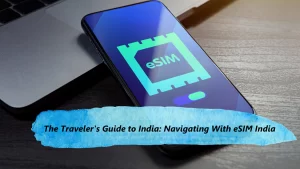Essential Health Insurance Tips for Frequent Travellers
In the current times of globalization, people have become more mobile than at any other time before. Whether it is for business or tourism, the convenience of being able to just book a flight and in a few hours, one can be anywhere in the world is something that is expected nowadays. However, travelling has its advantages and possibilities, it has its dangers and unknowns as well. One such risk that is often not considered by the travelers is health issues and to find the solution for the same you can gain Health Insurance Tips for Travellers.
Proper coverage can make a big difference between handling an emergency while on the road or not; having peace of mind is also crucial when on a trip Health Insurance Tips for Travellers. This post will give some important tips about health insurance for those who travel frequently, focusing especially on ACKO, which is a top provider in this sector.
Know what your current health insurance covers
Before leaving on any trip it’s important to review what kind of international coverage, if any, my policy provides. Many countries have limited or no domestic coverage outside their borders so call up your insurer and find out exactly where abroad you’d still be taken care of under them. Here are a few questions worth asking:
What constitutes ‘abroad’ for my policy?
- Does it cover any medical emergency that could happen overseas?
- Are there any specific exclusions/limitations regarding international travel?
- How do I file claims from another country?
Knowing these things can help one see if there’s a need for additional protection.
Consider getting travel health Insurance
This type specifically covers costs incurred due to illness/injury during trips; they differ greatly though so choose wisely! Some might only include hospitalization fees while others may add things like surgeries & prescription drugs too. When picking among them ensure:
- Hospitalization: It should pay for most if not all forms of treatment including surgeries or other procedures requiring admission into hospitals etc;
- Evacuation: This is necessary especially when one gets super sick somewhere really far off where they cannot get adequate medical care; it involves moving such persons back home or closer to better facilities.
- 24/7 Support: Go for those with round-the-clock customer service as you might be stuck in a foreign land and not know where to start.
Multi-trip coverage
It may not make sense financially speaking if someone travels once every leap year but for frequent fliers this could save them serious money. Such policies allow you to visit as many destinations within an agreed period without having to purchase another one each time. You only pay once either annually or per quarter etcetera depending on what suits your pocket best then keep travelling throughout that year so long until it expires e.g., if your insurer offers this, do they:
Specify the number of days covered per trip.
Cover all places intended by travellers
Include other things like lost baggage, trip cancellation, etc;
Familiarise yourself with how healthcare works locally
This will help during emergencies because at times overseas systems can be quite different from ours. Research about availability & quality of hospitals near where one will stay /visit plus their practices too since some countries have unique ways of doing things medically; also check out general health risks there and nearby English-speaking doctors/hospitals just in case the language barrier becomes problematic. Sources include government travel advisories among others.
Embassy or Consulate Services: Typically, your home country’s embassy or consulate can help with suggestions and support for medical care.
Online Travel Forums: Travel websites have discussion boards where travellers share their health-related stories and tips.
Carry Essential Health Information
It is important to keep your personal health information handy while travelling in case of an emergency. Here are some things you should include on a health information card:
Personal Details: Your name, date of birth, and contact number(s).
Emergency Contacts: Names and phone numbers of family members or friends that should be contacted if there is an emergency.
Medical History: Write down any chronic conditions you have had before now; provide details about allergies or other adverse reactions experienced concerning medications taken previously (please state names); list current medications being taken including dosage strengths/frequency of administration.
Insurance Details: Write all necessary information related to your policy like its number as well as your insurer’s contact info regarding any questions one might
Ask concerning this aspect of coverage
Keep this card in your wallet or a place that is easily accessible. It may also be useful to use digital apps that store such data securely on smartphones too!
Why would one choose ACKO?
One of the top suppliers of travel health insurance, ACKO presents complete plans meant to meet the requirements of regular travellers. ACKO distinguishes itself by the following among other factors:
- ACKO offers several reasonably priced travel health insurance policies catered to various budgets and needs.
- Their plans cover a broad spectrum of medical crises including hospitalisation, operations, and evacuation.
- Purchasing a policy and submitting claims is simple and usually done online with ACKO, so ensuring little fuss during trying circumstances.
Advice on Selecting Appropriate Travel Medical Coverage
Analyse Your Requirements
When selecting travel health insurance, take your particular travel patterns and demands into account. These pointers will assist you to decide on the appropriate policy:
Travel frequency: If you travel frequently, take cost-effective consideration for multi-trip coverage.
Destinations: Make sure the policy addresses every nation you intend to visit.
Health Issues: See if your pre-existing medical issues are covered or if further coverage is required.
Activities: Make sure your coverage covers associated injuries should you intend to participate in adventure sports or other highly dangerous activities.
Evaluate Various Policies
Spend some time reading over several travel health insurance plans. Examine the coverages, exclusions, and claim procedures. Additionally insightful are reading reviews and consulting fellow tourists for advice.
Value of Preventive Actions
Remain Educated and Ready
- Preventive actions can greatly lower travel-related health hazards. These pointers apply here:
- Verify your current immunisation status for the countries you are going.
- Carry enough of your prescribed drugs and keep a copy of them.
- Use sanitizers and practise proper hygiene—regular hand washing among other things.
- Food and water safety should be carefully considered, particularly in areas with recognised health hazards.
Using Technology for Medical Safety
Electronic Health Instruments
Maintaining health safety while on travel can benefit much from technology. These are some strategies for using technology:
Use apps for health information storage, medical advice provision, and local medical facility locating assistance.
Many insurance companies, like ACKO, have telemedicine programmes whereby you may see doctors far away.
Save on your phone local emergency services and emergency contact numbers for fast access.
Dealing with Common Travel Medical Problems
Dealing with Diseases and Injuries
Travelling carries health risks even with the best of care. Here are some typical travel health concerns together with advice on how to address them:
Traveler’s diarrhoea: Keep hydrated, utilise oral rehydration treatments, and visit a doctor should symptoms continue.
Carry a rudimentary first aid pack and see a doctor for any major injuries.
Altitude Sickness: Until completely acclimatised, stay hydrated, gradually adjust, and avoid physically demanding activities.
Conclusion
To sum up, those who travel often need to consider their health care coverage because it ensures that they are ready for medical emergencies while on the move. Factors such as awareness about the current policy and the availability of extra Health Insurance Tips for Travellers through reliable providers such as ACKO, and preventive care measures should be considered so one can travel healthy and be worry-free. As a reminder, the combination of precaution with preparations may be necessary when working with health insurance as well as security measures during travels.







You must be logged in to post a comment.